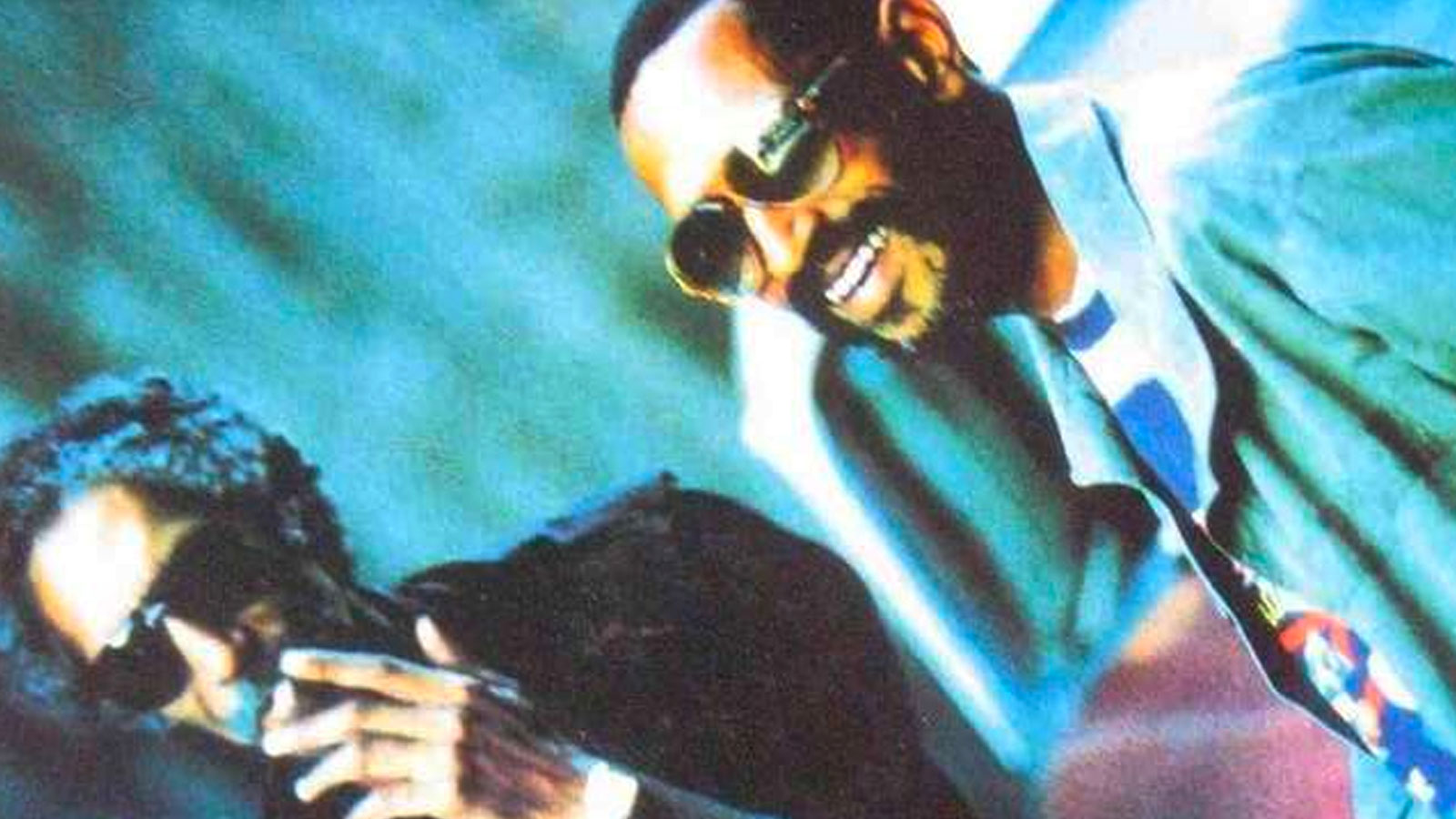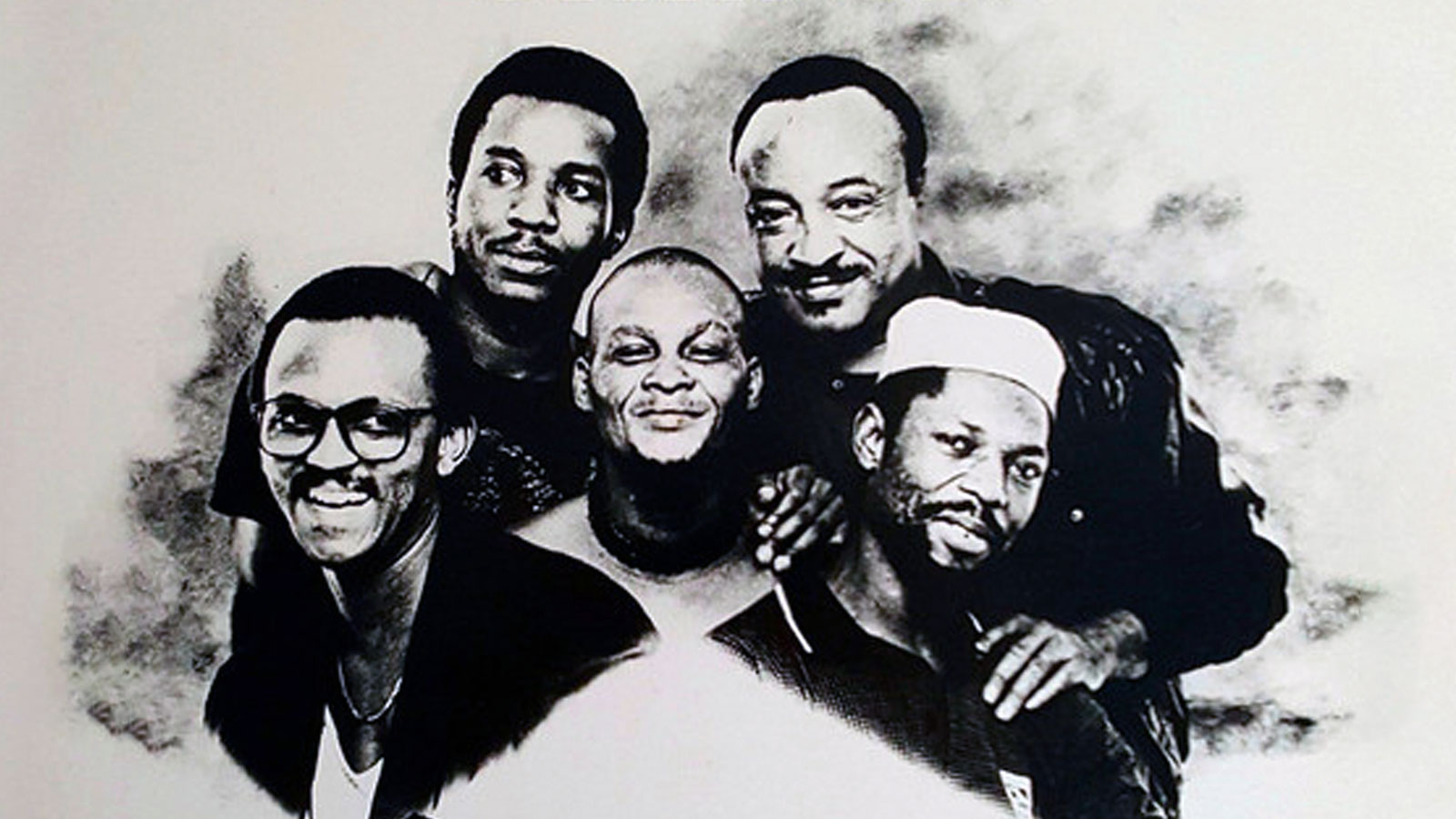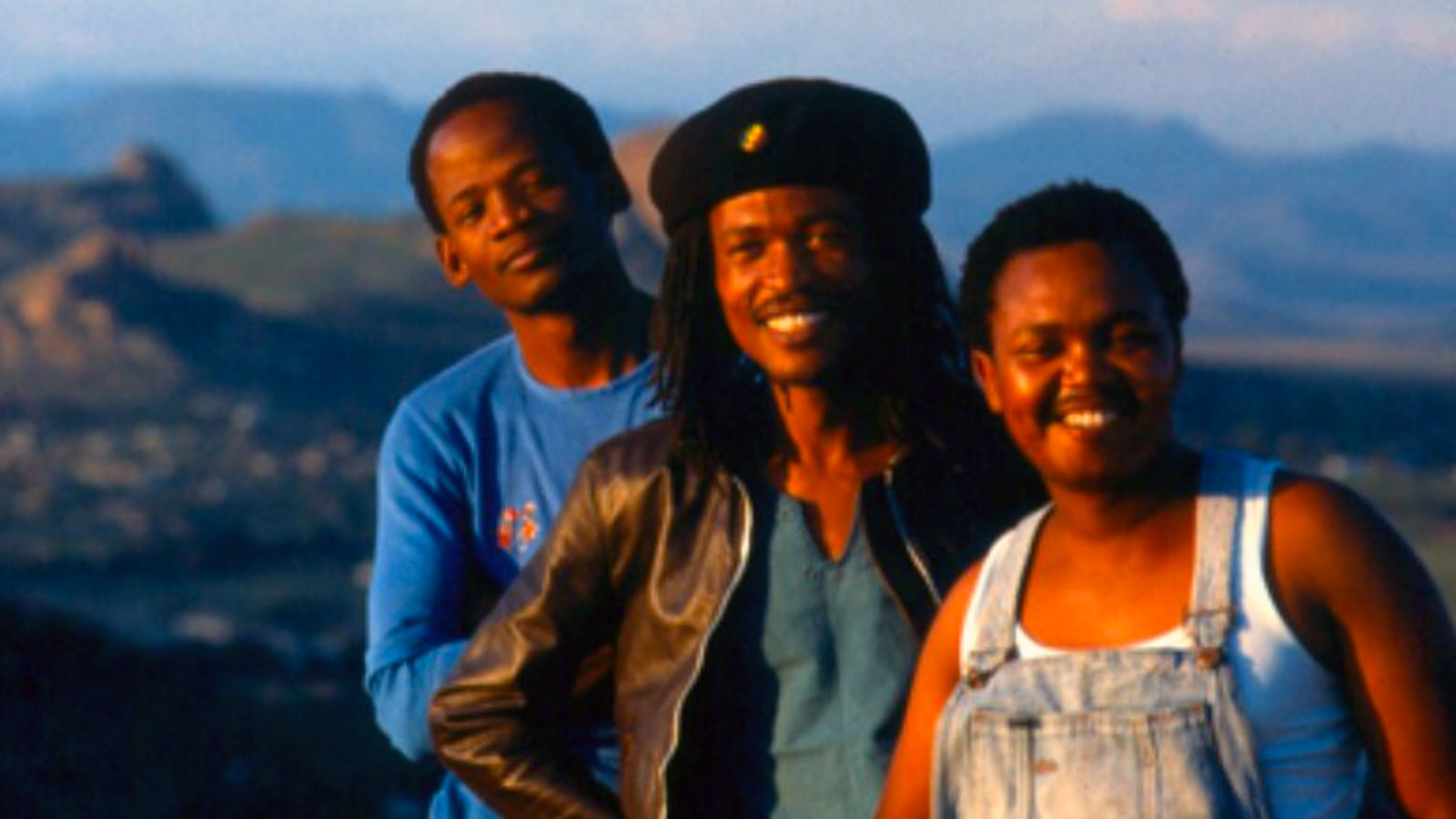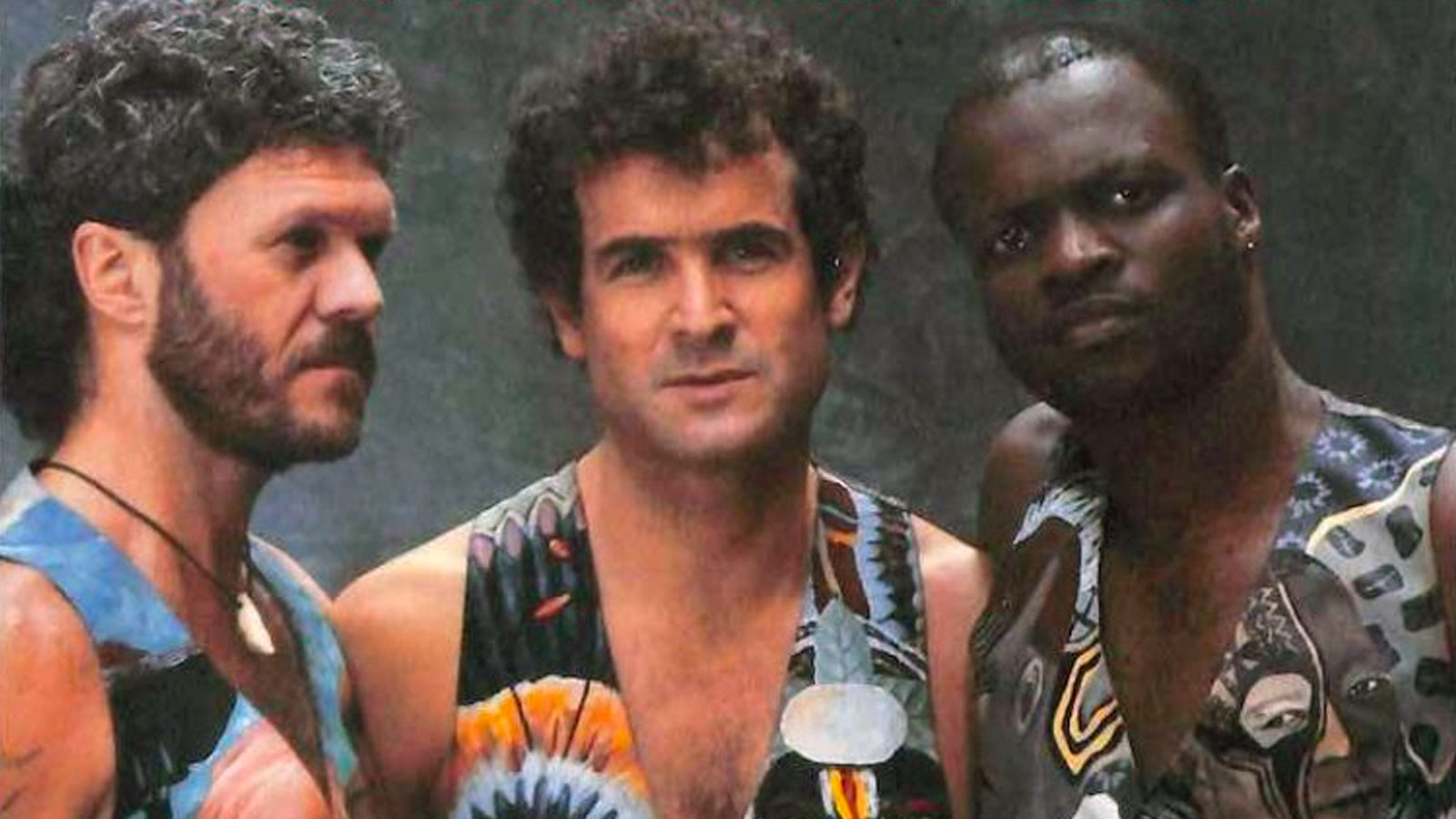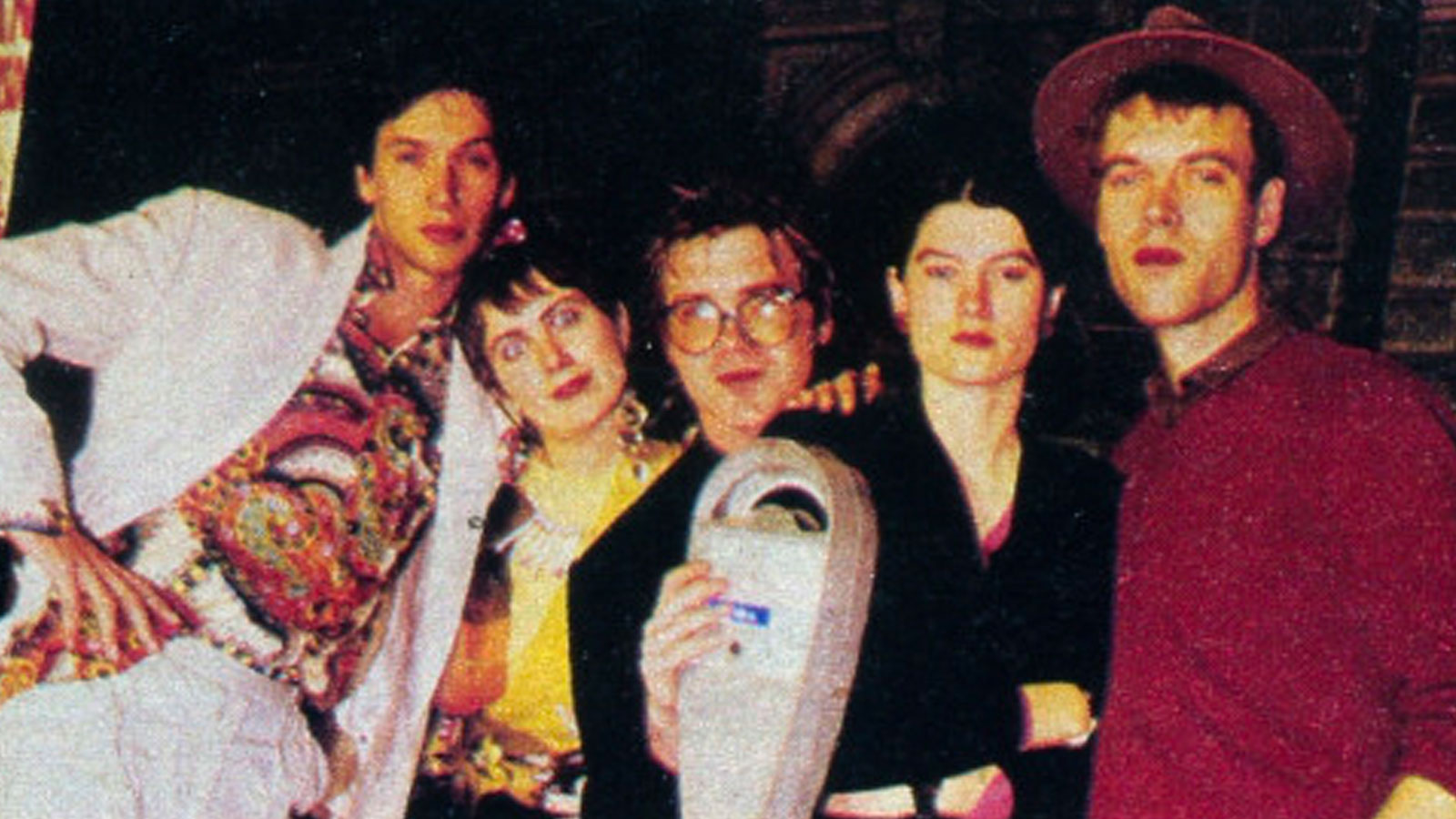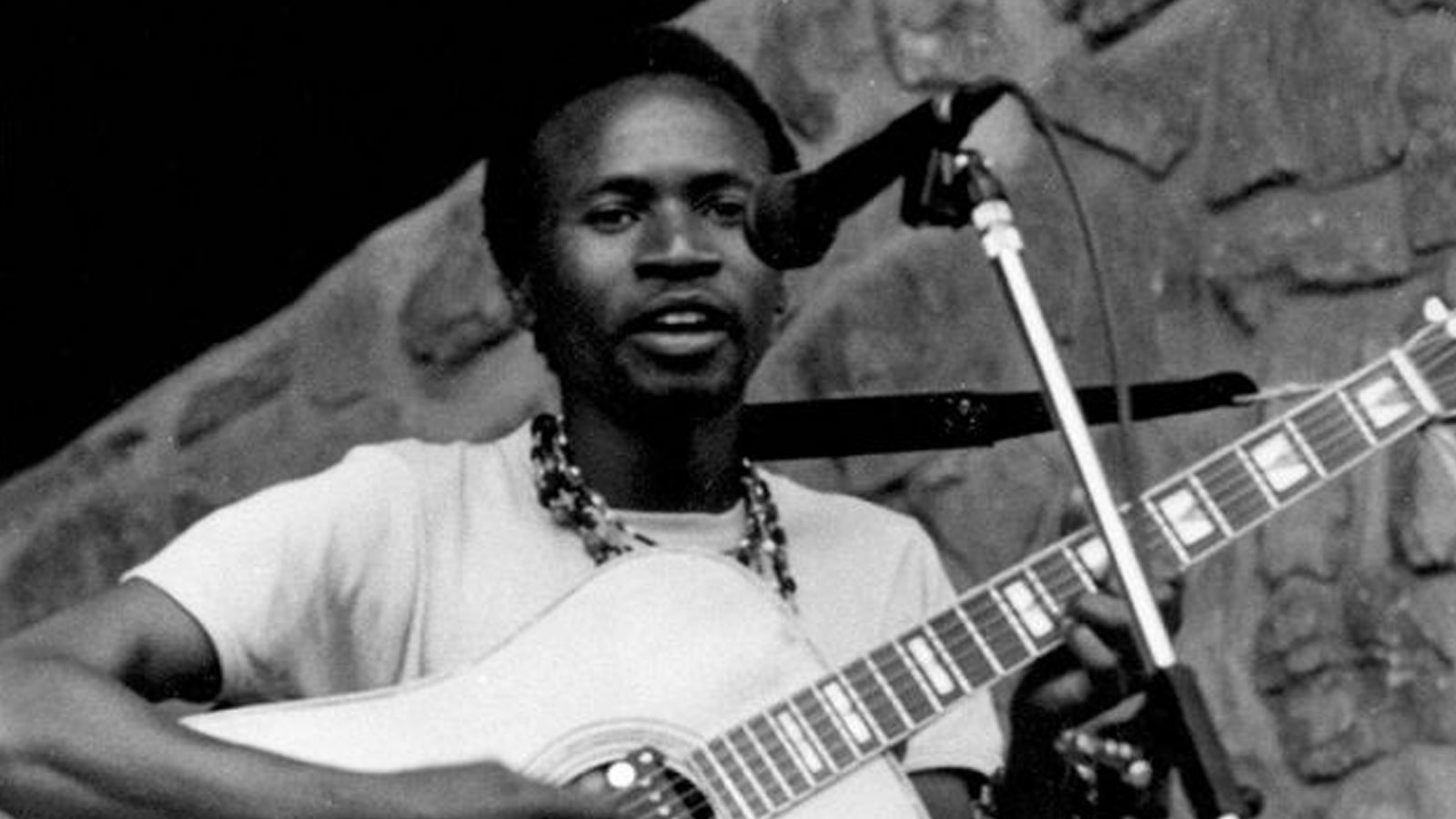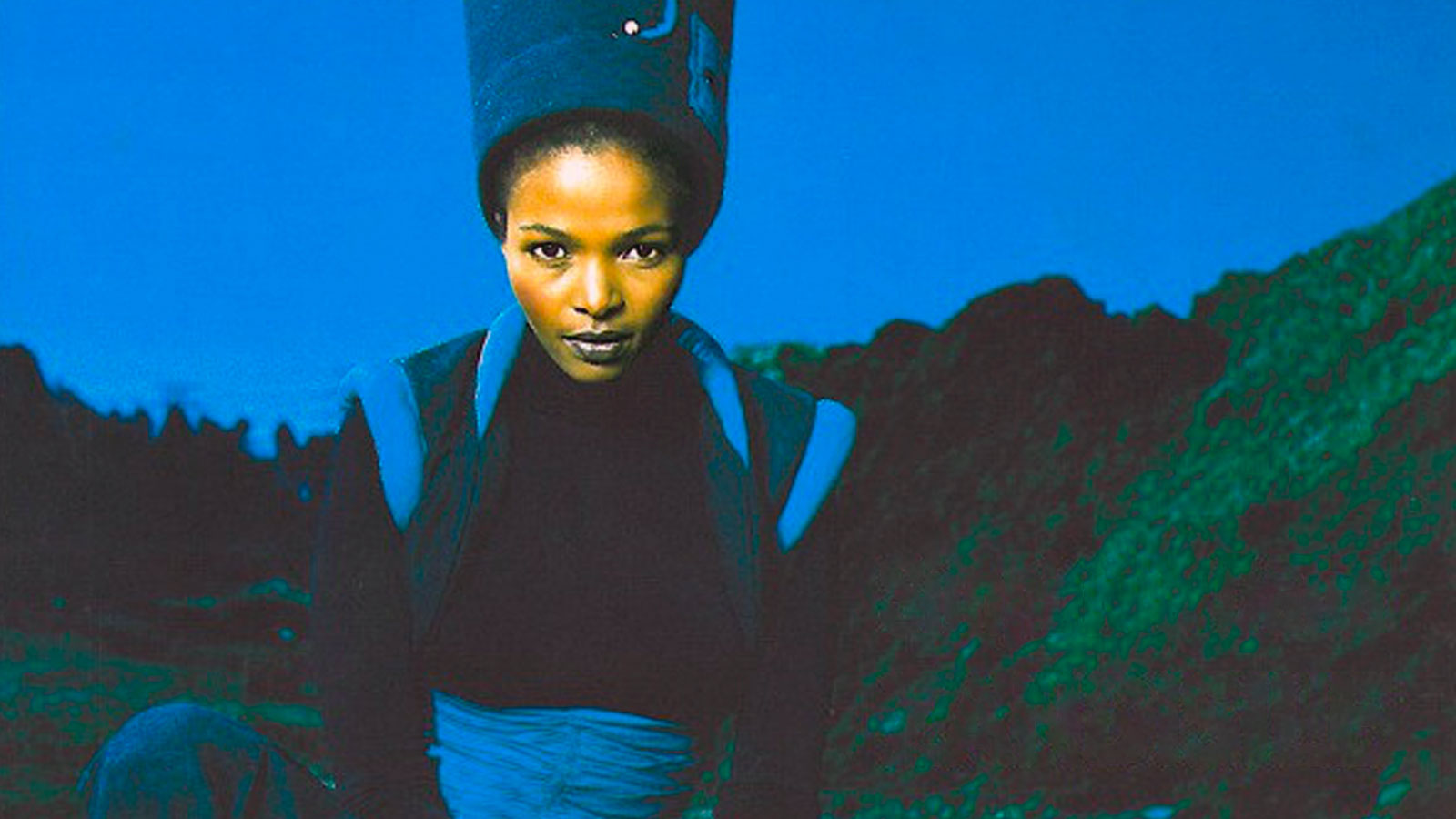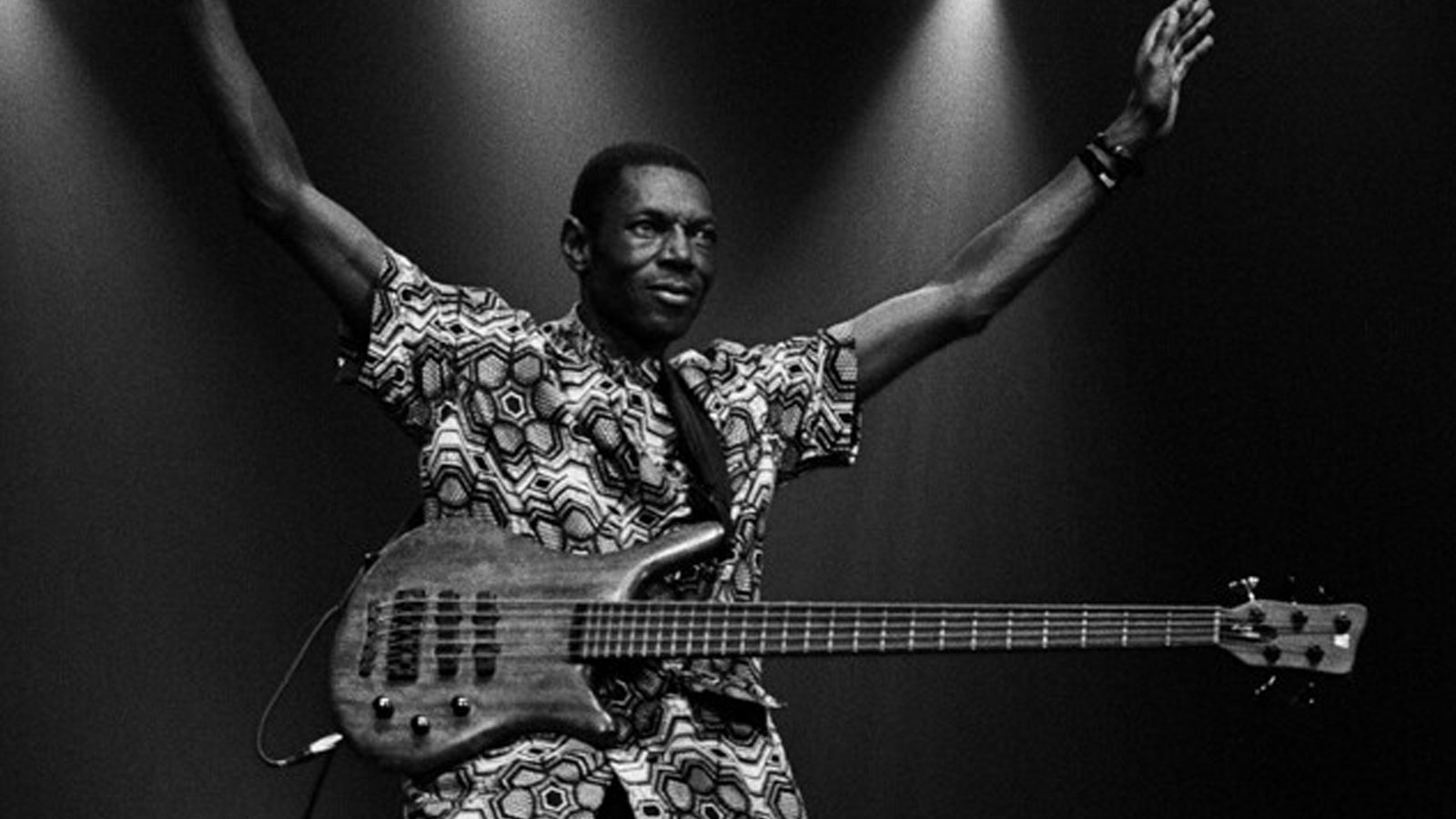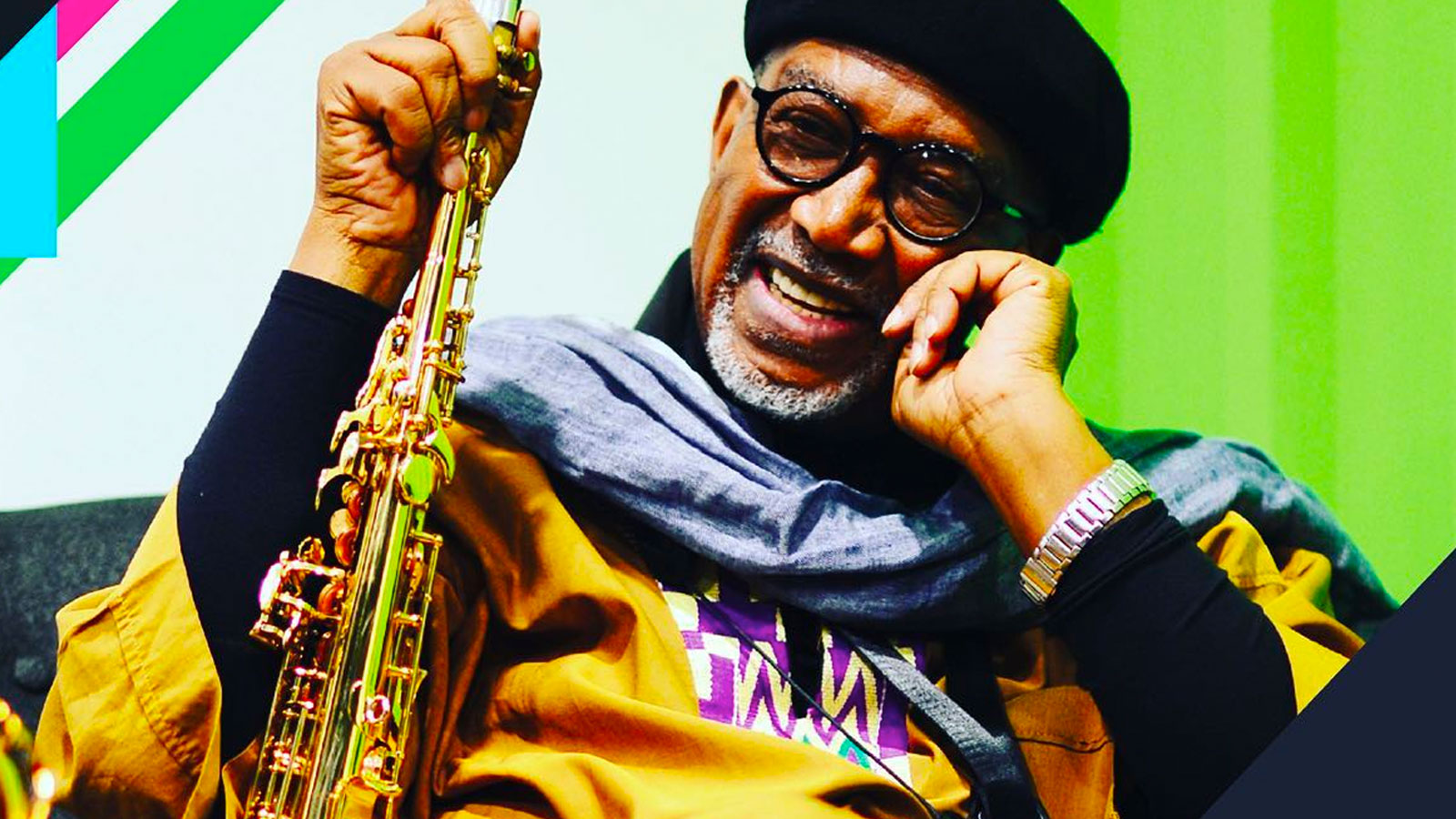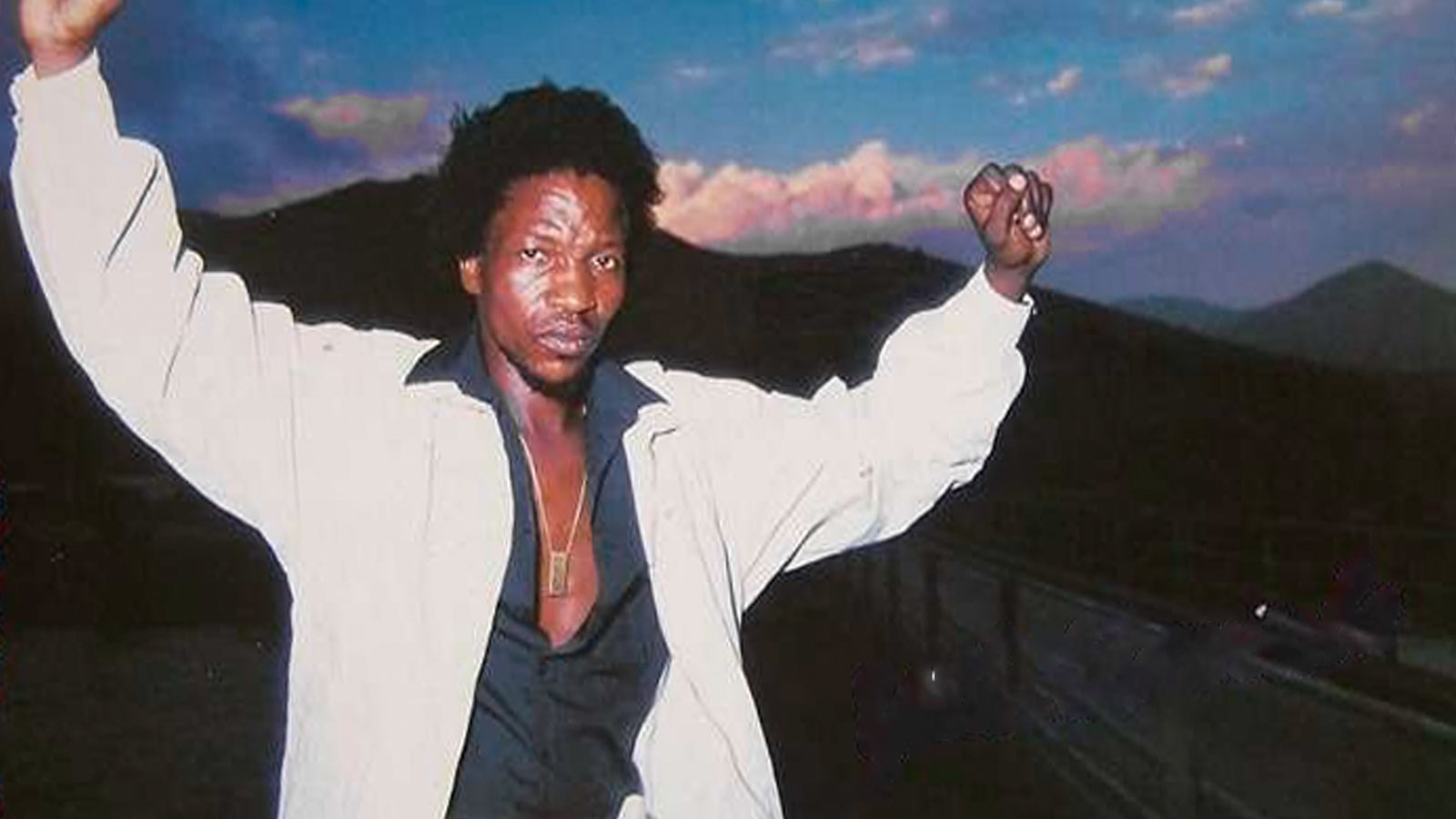Cape Town-based jazz group formed by Basil Coetzee in 1985: Basil Coetzee (tenor sax), Paul Abrahams (bass), Robbie Jansen (Alto and soprano sax), Jack Momple (drums), Michael Martin (piano), Vic Higgins (percussion), Titch Jean-Pierre (guitar) and James Kirby (guitar).
They released the album Basil ‘Mannenberg’ Coetzee’s Sabenza in 1987. During this time Sabenza toured South Africa and overseas.
In 1990 a follow-up album, Monwabisi, was released, although released under Basil Coetzee’s name, he still performed with Sabenza. For Monwabisi the line-up was Basil Coetzee (tenor sax), Paul Abrahams (bass), Jack Momple (drums), Monty Weber (drums and percussion), James Kirby (guitar) and various musicians appeared on keyboards: Tony Schilder, David Bravo, Paula Goldstone and Murray Anderson.
Formed in Johannesburg in 1981. A partial supergroup including former members of Spirits Rejoice, Harari and Malombo: Sipho Gumede (bass, vocals), Khaya Mahlangu (tenor and soprano saxes, vocals), Mahwetsha Donald Laka (keyboards, vocals), Gabriel Mabi Thobejane (percussion), Madoda Matunjwa (drums) and Manyatso Mathole (guitar).
Released the album Sakhile in 1982, followed by New Life (1983) and Phambili (1989).
The line-up for the 1989 album was Sipho Gumede (bass guitar and 8-string bass, vocals), Khaya Mahlangu (tenor and soprano saxes, vocals), Jabu Nkosi (keyboards, synthesizers, vocals), Gabriel Mabi Thobejane (percussion), Bheki Kunene (drums) and Menyatso Mathole (guitar).
Further released Welcome Home (1991) and Togetherness (2004).
Formed in Lesotho as Uhuru in the late 1970s. Frank Leepa (guitar, vocals, percussion), Tsepo Tshola (vocals), Maruti Selate (bass, vocals, percussion), Moss Nkofo (drums, vocals, percussion), Sunshine Makoena (keyboards, backing vocals) and Sponky Tshabalala (percussion).
They were deported from South Africa during a tour because they were regarded as subversive. Tsepo Tshola then left the group and attempted to pursue his career overseas. T
he band changed their name to Sankomota and in 1984 Shifty went to Lesotho to record their debut album in their mobile (caravan) studio. It was also Shifty’s first album. By 1986 they were allowed to perform in South Africa and Tsepo Tshola rejoined as vocalist. They went on to record a further four albums with major labels between 1987 and 1993.
Following the break-up of Juluka, Johnny Clegg released one solo album before forming Savuka in 1986.
The line-up featured Clegg (vocals, guitar and dancing), Solly Letwaba (bass), Steve Mabuso (keyboards), Keith Hutchinson (keyboard, sax), Dudu Zulu (percussion, dancing) and Derek de Beer (drums).
In 1986 they released the single “Asimbonanga” which was also included on the “Giyani” EP of the same year.
They released four studio albums: Third World Child (1987), Shadow Man (1988), Cruel, Crazy Beautiful World (1989) and Heat, Dust and Dreams (1993).
Achieved considerable success in Europe and France in particular. Clegg dissolved the group after the death of Dudu Zulu.
Cape Town band formed in the mid-1980s as Teenage Botha And The Blacks but re-emerged as Shake Baby in 1987.
Karl Helgard (guitar, vocals, synths), Liz Brokenheart (keyboards, vocals), Rupert Rau (bass, vocals), Karin Martin (vocals), Benny Profane (drums), Tessa Gawith (vocals) and Vernon Metropolis (sax and vocals).
Released two songs (“Falling In Love” and “Crescendo Diminuendo”) on the In From The Cold (1988) compilation released by Principle Records.
Born in Kenya and came to South Africa to study in the early 1980s. In 1983 he formed Mapantsula at the same time as befriending James Philips who introduced him to Shifty Records.
In 1986 Simba Morri left Mapantsula and was invited to record a solo album with Shifty. In 1986 he released the album Wasamata with Shifty.
The core of the band comprising Simba Morri on guitar and vocals, Gito Baloi on bass and Ian Herman on drums. Kelly Pitlane played flute and Jannie van Tonder played trombone. After the album was released the band morphed into Tananas without Simba Morri who continued to perform as a solo musician collaborating with others. In 1990 he recorded the album Celebrating Life with Third Ear Music.
Over the next three decades he has continued to perform in South Africa and in southern Africa: Zimbabwe, Zambia, Botswana, Malawi and Namibia.
Transkei-born singer songwriter who moved to Johannesburg where she began her music career in the early 2000s. She has released several highly acclaimed albums: Zandisile (2004), The One Love Movement On Bantu Biko Street (2006), Kulture Noir (2010) and Banako (2020).
Sipho Gumede (1952 – 2004) was a very influential South African musician. Bass player and songwriter and more recently a vocalist.
He started off playing in a band in Durban in 1968. Went up to Johannesburg in the early 70s where he made a living as a fringe musician until 1975 when he formed Spirits Rejoice.
Recorded the album African Spaces in 1976 and Spirit’s Rejoice in 1980, including the hit “Shine on” (1980). Gumede left to form Sakhile in 1981. Sakhile played a stronger form of African jazz than did Spirit’s Rejoice.
They aligned themselves with the political left and released a number of albums in the 1980s. When the band broke up Gumede pursued a solo career in the 1990s until his death in 2004.
Drummer, saxophonist, vocalist, songwriter. He began his career as the drummer for the Beaters in 1968. In 1976 they changed their name to Harari.
Sipho Mabuse left Harari in 1981 in order to pursue a solo career. He initially worked with the Soweto Soul Orchestra releasing an album of that name in 1981.
His first fully-fledged solo single was ‘Rise’ (1983) but it was with ‘Burn out’ (1984) that he had his biggest hit. He released his first album Jive Soweto in 1985.
He released several studio albums over the next decade but has since mostly performed and released live albums.
In the later 1990s and early 2000s he was the owner and manager of the Kippies Jazz venue in Newtown, Johannesburg.
Born in Kwazulu-Natal , as a teenager leant to play guitar and went to Johannesburg in 1969 to work as a gardener. He met Johnny Clegg and the two began to play music together, soon performing at folk gatherings as Johnny and Sipho before changing their name to Juluka in 1979.
In 1985 Sipho Mchunu left Juluka in order to focus on his family and his farm.
In 1989 he recorded the solo album Yithi Esavimba released in France and followed that in 1990 with the album Umhlaba Uzobuya with Third Ear Music.
Poor marketing and distribution meant that neither album achieved the sales they ought to have done. He continued to perform with Johnny Clegg as Juluka from time to time and they brought out a further Juluka album in 1997.
He joined Johnny Clegg as a guest artist for some of Johnny Clegg’s final shows.


